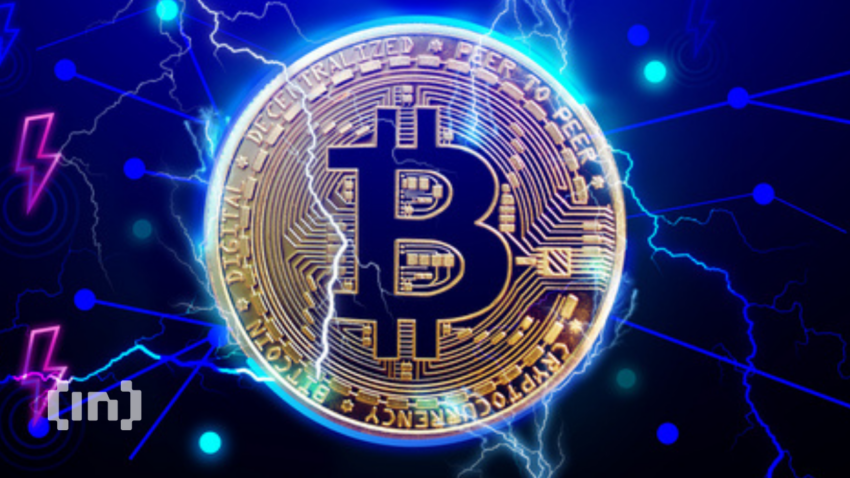When Satoshi Nakamoto launched Bitcoin, he envisioned a peer-to-peer payment system that would make banking easier. He foresaw a system that would reinstate privacy and get rid of third parties. In doing so, transactions would be faster, cheaper, and more efficient. Though this vision has yet to be realized, the Bitcoin Lightning network aims to bring us closer.
For all the functional benefits that Bitcoin provides, using it in real time is still pretty clunky. In 2016, Joseph Poon and Thaddeus Dryja launched the Lightning Network to try to make things smoother and more cost effective. How has their idea performed?
Goals of the Lightning Network
The Lightning Network is a second-layer scaling solution built on top of the Bitcoin blockchain. It allows transactions to be processed almost instantly and with much lower transaction fees than traditional payment networks like Visa and Mastercard. Using a technique called onion routing, the protocol essentially breaks up data into multiple packets. Then, it sends these out through different nodes in the network using end-to-end encryption. This makes the transactions more secure and private since it is hard to trace the origin of a transaction.
The Bitcoin Lightning Network also allows for increased scalability, with the ability to handle millions of transactions per second and much higher transaction volumes than Visa or Mastercard. This is because it eliminates the need for centralized systems, providing a decentralized peer-to-peer system with no single point of failure. Additionally, Lightning Network fees are much lower than those of Visa and Mastercard, making it a great option for microtransactions.
Microtransactions are small, instant financial transactions that take place online. They typically involve the exchange of only a few cents or dollars and may be used to purchase digital goods or services. Using Bitcoin for small amounts has been unrealistic due to high gas fees. The Lightning Network is a suitable platform for microtransactions due to its low transaction fees and near-instant processing.
Credit Card Fees vs. Bitcoin Lightning Network
Credit cards come with fees, some of which make sense, while others surprise you. As noted in Forbes, credit card companies charge a range of processing fees that the merchant has to pay in order to accept your payment method. These fees range from the type of card to the type of merchant to the transaction amount to the location of the transaction. Some fees are based on monthly sales, while others are per transaction.
Visa charges an interchange fee of 1.15% + $0.05 to 2.40% + $0.10. Additionally, they charge an assessment fee of 0.14%.
Mastercard charges an interchange fee of 1.15% + $0.05 to 2.50% + $0.10. Their additional assessment fee is 0.1375% for transactions under $1,000 and 0.01% for transactions of $1,000 or more.
So a $100 purchase using Visa costs the merchant from $1.34 to $2.64. The same purchase using Mastercard costs from $1.4775 to $2.7375.
The Bitcoin Lightning network charges a base fee of 1 Satoshi (or 0.00000001 BTC), which is roughly $0.02 as of this writing. For some, that may make accepting payment methods built on the Lightning network, like Strike, more attractive.
Centralization vs. Decentralization
Credit cards can take days to reconcile payments, which is why you might see “pending” transactions on your statement. This can be extremely stressful for people and businesses operating on limited funds.
Centralized banking takes days to verify transactions on behalf of payers and payees. Decentralized banking enabled by the Lightning network can take seconds. Furthermore, you can use the network without sharing personal information as required by banks.
However, if users make a mistake and send funds to the wrong person or are hacked, there is no central authority to step in. One big benefit of using credit cards is that scams and purchases made with stolen cards can be undone. The same crimes committed with crypto wallets cannot.
Challenges and Limitations of the Bitcoin Lightning Network
Using and scaling Bitcoin’s Lightning Network presents a number of technical, regulatory, and security considerations.
The most serious challenge associated with the Lightning Network is its complexity. It requires users to have an in-depth knowledge of cryptography, networking protocols, and digital asset management in order to utilize the network effectively. Additionally, setting up nodes and channels requires a high level of technical proficiency. This makes it much more likely that people will give up and look for a more user-friendly offering.
In terms of security, the Lightning Network is particularly vulnerable to attacks, such as Sybil attacks and DDos. A single node or channel could be targeted by attackers and taken down with relative ease, putting the entire network at risk. This makes it especially important for users to set up their nodes and channels properly to ensure the network’s security.
Lastly, there are a number of regulatory challenges associated with using the Bitcoin Lightning Network. Different countries have different laws and regulations surrounding digital assets. This makes it difficult to navigate the legal implications of using this technology. Many jurisdictions do not yet recognize cryptographically signed messages as valid forms of payment. So all of the proposed benefits could be rendered null.
Possible Solutions
David Marcus recently launched LightSpark, and on Tuesday he revealed its suite of tools. The company enables users to integrate its platform into their operations. This will allow them to process bitcoin transactions fast and with ease on the Lightning network. Most importantly, they deemphasize the high technical literacy needed to access the benefits of the Lightning network.
In Brazil, Bitcoin Beach has onboarded hundreds of people including merchants and consumers. Sellers can buy handheld payment card readers, or point of sale machines. And buyers can use Bolt Cards, which work like debit cards holding crypto. By mimicking a familiar mode of payment, they make it that much easier for people to opt in.
Nordlys, a pseudonymous Lightning node operator, said in recent tweets that these are exciting times for developers looking to build things on the Lightning Network. But they also worry that the constant shifting of liquidity may have a negative impact on the network, including failed payments.
Though far from perfect, the Lightning Network offers a number of benefits for digital payments. It is encouraging to see so many entrepreneurs tackling these technical hurdles. To be fair, the Lightning Network might not be the protocol that brings Bitcoin to the masses. But it has helped lay the foundations for others to address the need for a payment system advantageous to merchants and consumers alike.
Disclaimer
Following the Trust Project guidelines, this feature article presents opinions and perspectives from industry experts or individuals. BeInCrypto is dedicated to transparent reporting, but the views expressed in this article do not necessarily reflect those of BeInCrypto or its staff. Readers should verify information independently and consult with a professional before making decisions based on this content. Please note that our Terms and Conditions, Privacy Policy, and Disclaimers have been updated.


